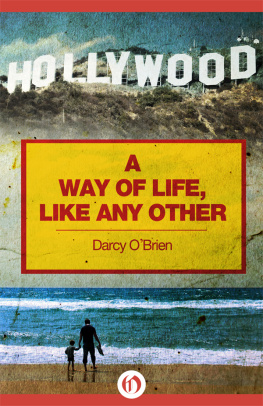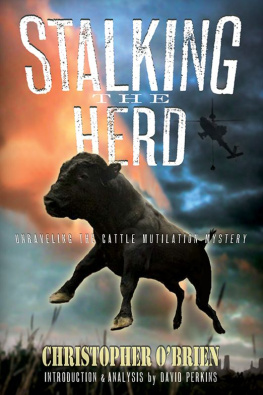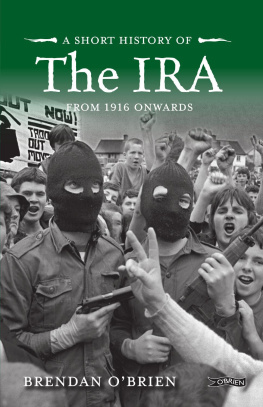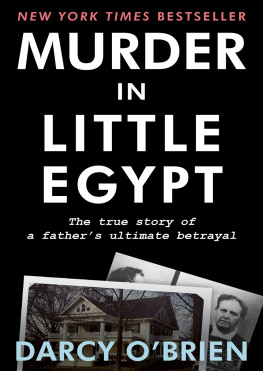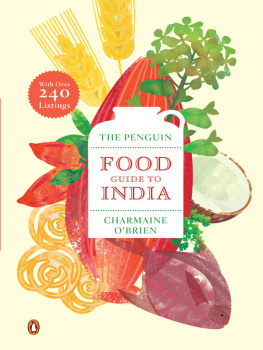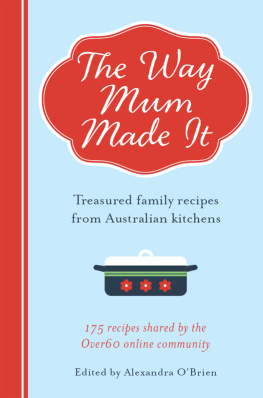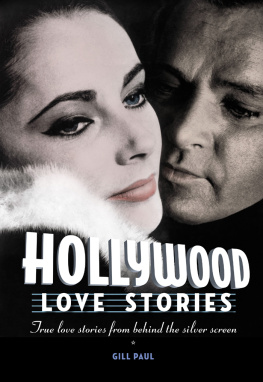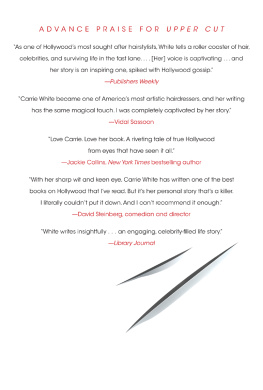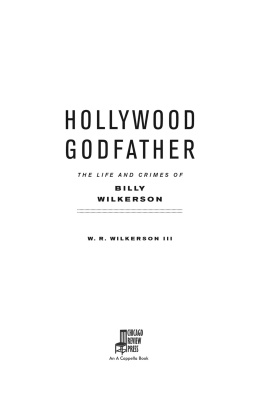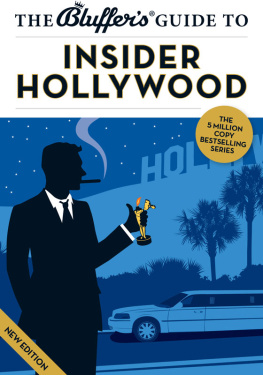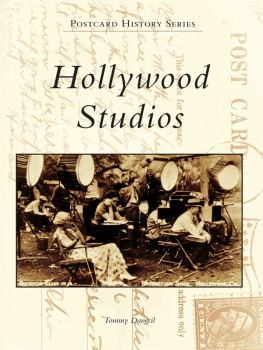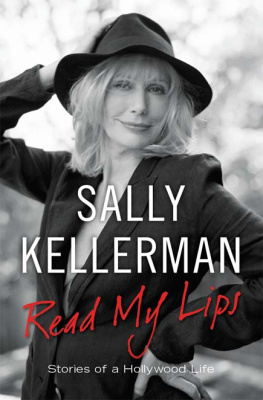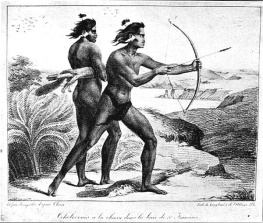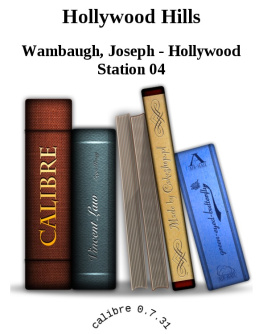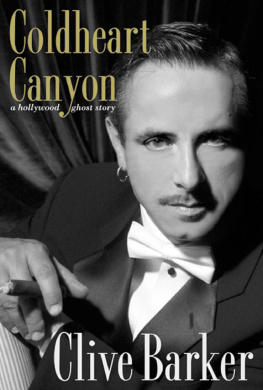Its a way of life, like any other.
Growth, Self-deception, and Loss.
A Way of Life, Like Any Other
Darcy OBrien
Introduction by Seamus Heaney

All rights reserved, including without limitation the right to reproduce this ebook or any portion thereof in any form or by any means, whether electronic or mechanical, now known or hereinafter invented, without the express written permission of the publisher.
This is a work of fiction. Names, characters, places, events, and incidents either are the product of the authors imagination or are used fictitiously. Any resemblance to actual persons, living or dead, businesses, companies, events, or locales is entirely coincidental.
Copyright 1977 by Darcy OBrien
Introduction copyright 2001 by Seamus Heaney
ISBN 978-1-4976-5871-4
This edition published in 2014 by Open Road Integrated Media, Inc.
345 Hudson Street
New York, NY 10014
www.openroadmedia.com

For Thelma OBrien
CONTENTS
INTRODUCTION
O NE THINKS of Homer, says Joyces Buck Mulligan in Ulysses, mocking W.B. Yeatss fulsome introduction to Lady Gregorys Cuchulain of Muirthemne, and displaying the sort of high spirits and disrespect which readers will recognize in this book also. Darcy OBrien will make them think of Joyce. Or of Flann OBrien. Or of what Joyce said of Flann OBrien: Thats a real writer, with the true comic spirit.
When A Way of Life, Like Any Other was published in 1977, Darcy OBrien was teaching at Pomona College, a tenured professor with three critical books to his name, the first one derived from his doctoral thesis on James Joyce and the other twoon the poets W.R. Rodgers and Patrick Kavanaghthe result of invitations to contribute to a series of critical monographs on Irish writers. The work he did on the poets was, as they would say in Dublin, grand; in both books, the author went through the biographical and critical motions with a nice mixture of academic correctness and the personal touch, and displayed a useful familiarity with the Irish background. There was little sense, however, that Darcy himself was hitting his stride as a writer. These were maculate performances by someone with a gift for the immaculate.
The gift was evident in his gear and his giggle, his perfect manners that masked a susceptibility to the uncensored and the incorrect. Tanned, seersuckered, elegantly shod and shoe-shined, he would arrive in Ireland every summer and move like some kind of god through the bohemian kitchens of Ranelagh and the open-hearth holiday homes of West Donegal, a Californian Apollo in the land of Philomena and Barney, Ivy Leaguer in the bteau ivre of an after-hours pub. His level smile on such wild occasions, his at-homeness in places where he was slightly deliciously out of it, all suggested his artists capacity for immersion and detachment. Sooner or later the humor and judgment that flashed in his grin were bound to end up as a style.
It was only gradually that I realized how exotic a life Darcy had lived as the child of famous Hollywood stars. I am sure that A Way of Life, Like Any Other gives a heightened, necessarily overdone picture of what his childhood and adolescence were like, but it did take a while for the reality behind the book to impinge on me. Darcy didnt mention it much. I learned about it mostly from the talk of his fellow novelist Thomas Flanagan, who spoke with an enthusiasts conviction and an encyclopedists knowledge about George OBriens career, his historic roles in F.W. Murnaus Sunrise and Hamilton MacFaddens Riders of the Purple Sage. Tom Flanagan and Darcy had met when Darcy went to Berkeley as a postgraduate student, and Flanagans influence (which promptly turned to friendship) was all-important in directing him toward Irish literature and in bringing him to a realization that his Scott Fitzgerald sidePrinceton undergraduate, glamour-surferand his Joyce sidechild of Catholicism, potential transubstantiatorcould be brought into creative alignment.
A story I heard after Darcys too early death in 1998 illustrates the extent of his affiliations and the chance ways in which he came to recognize and integrate them. His mother, the actress Marguerite Churchill, was a great anglophile and gave him his first name in order to link him to the character in Jane Austens Pride and Prejudice. If she was intent on countering the American Irishness of the OBrien connection, she didnt succeed, since at Berkeley Tom Flanagan would reveal the Irish dimension of the Darcy name (wasnt there a Mr. Bartell DArcy in The Dead, for a start?). In doing so the teacher is bound to have brought the student of Joyce to an awareness that the English, Irish, and American traditions constituted a kind of literary trampoline where he could exercise and excel.
The gift of tongues arrived with the first chapter of A Way of Life, Like Any Other. Casa Fiesta indeed. A jubilation, a ventriloquism, a writer figure-skating into his kingdom, his self-awareness his release. Hollywood is there in all its crazy realism, autobiography is there in all its poignant detail, but what is chiefly present is a sense of the language performing in and for and through the writer. Not that the characters dont live a life of their own, rare yet recognizable, brilliantly convincing even in their utter boringness. In the second chapter Sterlings paean to the avocado is a triumph, as believable as tape-recorded speech, as artful as anything in Wodehouse:
I always know Im recovering when I can eat avocados again. I like them plain, maybe with a little lemon juice. Some people like a vinaigrette sauce. Theres no better breakfast than an avocado sliced on a piece of whole wheat toast and a cup of coffee. Black coffee, no sugar. People eat too much sugar anyway.
This is one kind of comedyof manners, of caricature, of broad joyand it abounds throughout the book. Its there every time Anatol, the mothers lover, appears; or Sam Caliban, the gambling producer; or Marshall Marshall, John Bircher, veteran of the industry and now a has-been (Hes a lonely fellow, my father said. I noticed his weight going up. He needs to get out into the fresh air). But theres another, more sophisticated comedy going on, a connoisseurs game of echo and allusion, a game I got wise to after I had lent the author a book I was reviewing during one of his visits to Dublin. It wasnt long before I discovered the following passage in his work in progress:
I had been nearly two years caring for my father and had some reason to be pleased with my work. His habits were again cleanly, his house and its treasures were in order, his spirits were level, except for the periodic fit of gloom, which he often tried to conceal from me.... I would try to cheer him up with jokes or by preparing a good meal, though like sheep who are very subject to the rot if their pasture is too succulent, he thrived on the simplest fare.
Theres a touch of Flann OBrien there perhaps, in the pedantry and the verbal tweezer-workcleanly, subject to the rotthat holds out bits of diction for our particular inspection, but what sustains the prose and strokes its cadenced flanks is the eighteenth-century melodies of William Cowpers account of keeping tame hares. Darcy had come across it accidentally in my review copy:

